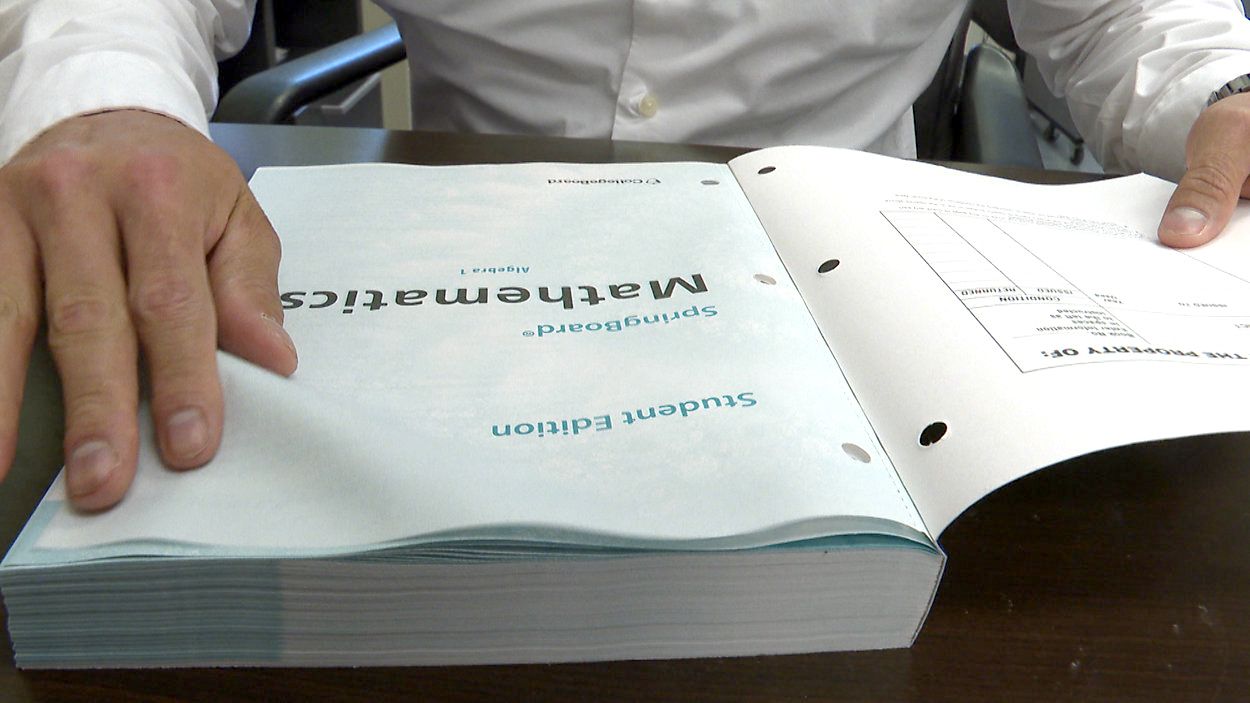ST. PETERSBURG, Fla. — Officials with the Florida Department of Education say they rejected 41% of math instructional materials submitted for consideration to the state — the most in its history.
According to the department, the rejected materials either didn't align with state standards or contained prohibited topics, like critical race theory.
What You Need To Know
- Officials with the Florida Department of Education say they rejected 41% of math textbooks submitted to the state for possible adoption
- They claim instructional materials were rejected because they didn't align with state standards and/or contained prohibited topics
- Despite the high number of rejections, the state says every core math course and grade is covered with at least one textbook
- Department officials say 78 of 132 total textbooks are being adopted
"It seems that some publishers attempted to slap a coat of paint on an old house built on the foundation of Common Core, and indoctrinating concepts like race essentialism, especially, bizarrely, for elementary school students," Gov. Ron DeSantis is quoted as saying in a release from the FLDOE.
The release said 71% of submitted materials were rejected for grades K-5; 20% were rejected for grades 6-8; and 35% were rejected for grades 9-12.
A total of 28 books were not adopted because the state claims they incorporated prohibited topics or unsolicited strategies, like CRT.
State officials said 12 books didn't align with Florida's Benchmarks for Excellent Student Thinking (B.E.S.T.) Standards, and 14 both didn't align with standards and included prohibited topics.
According to the state, the criteria on what textbooks should and shouldn't include was clear when it put out a call for bids to publishers last year.
Morgan Polikoff is an associate professor of education with the University of Southern California's Rossier School of Education. Polikoff studies curriculum policy, which he said includes how states decide what textbooks to adopt. He said states are increasingly concerned about critical race theory in K-12 curriculum, but whether CRT is actually found in these materials is another story.
"I don't think that there's really any evidence that critical race theory is filtering into K-12 textbooks that I'm aware of," said Polikoff. "Florida and many other states have passed various kinds of restrictions relating to what kinds of content appears in curriculum materials and teachers' instruction, and critical race theory is definitely a concern.
"So, it doesn't surprise me that a textbook evaluation in Florida might find evidence of critical race theory in textbooks, but I think a different committee in a different state that didn't have such concern would probably not find evidence."
Polikoff said it's also unusual that there's concern about CRT being included in a math book rather than, for example, a history or social studies text.
"It's extremely surprising," Polikoff said. "I would be very interested in seeing specific examples of what they're concerned about."
Spectrum News has reached out to the Department of Education to learn more about the rejected materials.



